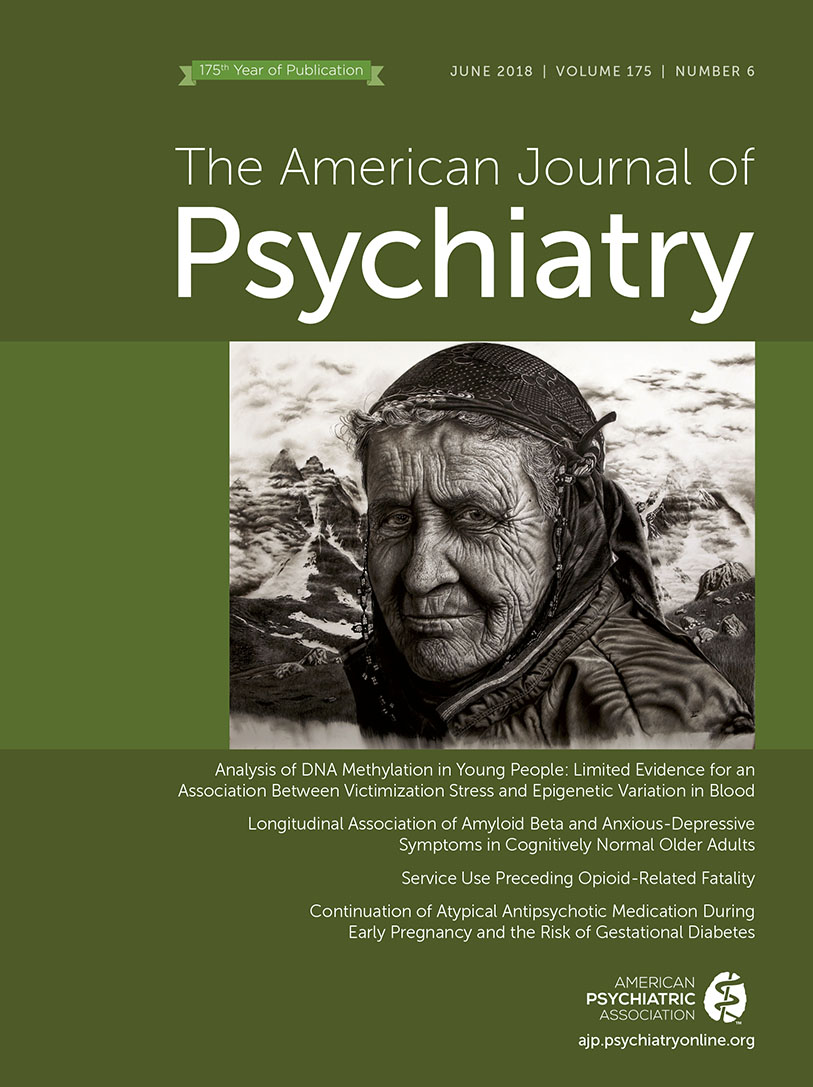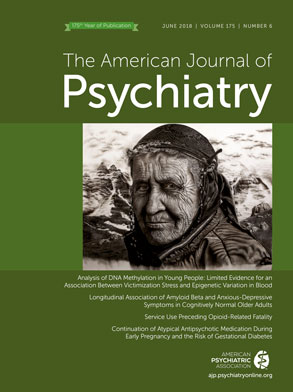T
o the E
ditor: In the March 2018 issue of the
Journal, O’Connell et al. (
1) report an association between rs28365143, which lies in the corticotropin-releasing hormone binding protein (CRHBP) gene, and efficacy of antidepressant treatment in major depressive disorder. The association was found only in patients treated with the selective serotonin reuptake inhibitors (SSRIs) escitalopram and sertraline, and not with venlafaxine. Under a dominant genetic model, patients carrying the minor allele A showed worse treatment outcomes compared with GG homozygotes. The article uses 636 participants from the International Study to Predict Optimized Treatment in Depression (iSPOT-D), with replication in 141 participants from the Predictors of Remission in Depression to Individual and Combined Treatments (PReDICT) study. The article does not report results from the genome-wide meta-analysis of the Genome-Based Therapeutic Drugs for Depression (GENDEP) project, the Munich Antidepressant Response Signature (MARS) project, and the Sequenced Treatment Alternatives to Relieve Depression (STAR*D) study (2,256 participants) (
2). This meta-analysis shows no evidence of association between rs28365143 and antidepressant remission (p=0.70) or symptom improvement (p=0.54) (
3).
The study from O’Connell et al. highlights the challenges in analyzing candidate gene studies with participants across ethnic groups. Studies of antidepressant response are particularly susceptible to population stratification because response differs by ethnicity (for example, African Americans had substantially lower remission rates than Caucasians in the STAR*D study [
4]). Combined with allele frequency differences across populations, ethnic differences can lead to artifactual results that reflect genetic ancestry and not genetic association. Adding ancestry-informative principal components as covariates in the regression analysis protects against false positive results, but this was not possible with the candidate variant genotyping in the iSPOT-D. The authors performed a sensitivity test showing that the effect size for rs28365143 was similar in Caucasian iSPOT-D participants (60.1%) and non-Caucasians (39.9%; see Table S4 in the data supplement accompanying the online edition of the original article). This may not be a sufficient control because the non-Caucasian group included black, Asian, other, and missing races (see Table 2 in the article). In addition, the frequency of the rs28365143 A allele differs by ancestry (3.5% in European populations; 18.4% in African populations) and is missing in East Asian populations (
5).
As a direct test for replication of the study findings, we performed a meta-analysis of rs28365143 association with SSRI remission and symptom improvement in 3,065 participants with major depressive disorder from seven samples (
6–
9). In our analysis, rs28365143 was imputed according to methods previously described (imputation quality was good in all samples), and the analysis used an additive model with principal components (
10). All patients were Caucasian and were treated with SSRIs (citalopram, escitalopram, fluoxetine, paroxetine, and sertraline). Alpha was set at 0.05, and our sample size provided adequate power (>0.80) to detect an odds ratio of 0.31 corresponding to the effect reported by O’Connell et al. (
11). We found no significant association of rs28365143 with symptom improvement (p=0.15, beta=−0.09, 95% CI=−0.22 to 0.03) or remission (p=0.11, odds ratio=0.79, 95% CI=0.60–1.06), although the direction of effect was the same as found by O’Connell et al. Results using a dominant model were similar to the additive model probably because the low minor allele frequency makes these models equivalent.
Independent replication represents a fundamental step in pharmacogenetics. Our negative meta-analysis in larger samples cautions against accepting results from small selective replication instead of using large, available data sets.
Acknowledgments
The authors thank NIMH for providing access to the STAR*D sample, where data and biomaterials were obtained from limited-access data sets.

